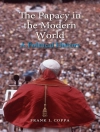Early modern England was marked by profound changes in economy, society, politics and religion. It is widely believed that the poverty and discontent which these changes often caused resulted in major rebellion and frequent ‘riots’. Whereas the politics of the people have often been described as a ‘many-headed monster’; spasmodic and violent, and the only means by which the people could gain expression in a highly hierarchical society and a state that denied them a political voice, the essays in this collection argue for the inherently political nature of popular protest through a series of studies of acts of collective protest, up to and including the English Revolution.
The work of John Walter has played a central role in defining current understanding of the field and has been widely read and cited by those working on the politics of subaltern groups. This collection of essays offers a radical re-evaluation of the nature of crowds and protests during the period, and it will make fascinating reading for historians of the period.
Inhoudsopgave
Introduction: Reconstructing popular political culture in early modern England
1. Crown and crowd: popular culture and popular protest in early modern England
2. Grain riots and popular attitudes to the law: Maldon and the crisis of 1629
3. The geography of food riots, 1585–1649
4. A ‘rising of the people’? The Oxfordshire rising of 1596
5. The social economy of dearth in early modern England
6. The impact of the English Civil War on society: a world turned upside-down?
7. Public transcripts, popular agency and the politics of subsistence in early modern England
Over de auteur
John Walter is Professor of History at the University of Essex












